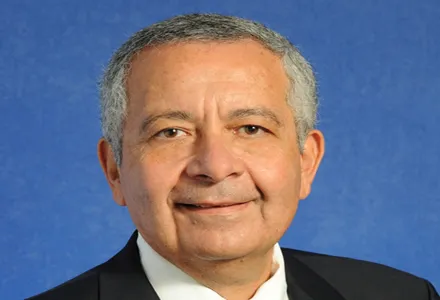
Interview with Dr Essam Radwan, chairman of the Department of Civil, Environmental and Construction Engineering, University of Central Florida and vice-chair of the 17th IRF World Meeting Scientific & Technical Committee
The economic impacts of road transport are undeniable, yet notoriously hard to quantify. The central theme of theHow can transport infrastructure investments form part of the mix of recovery inducing instruments available to policymakers? This is one of the questions that will guide our thinking as we elaborate the content and outputs of the IRF World Meeting.”
Dr Radwan gave important advice to authors who may be considering whether to submit a paper at the 17th IRF World Meeting and said, “The World Meeting is an all too rare opportunity for our sector to discuss challenges and share expertise in a truly global environment. Presenting a paper at the World Meeting can turn into a highly beneficial experience, both for individual authors and the profession as a whole.
Our primary remit to help the sector identify new solutions or new applications to existing solutions and, wherever possible, the emphasis of papers should be on applied research, ranging from initial data collection to ex-post evaluations.
Dr Radwan highlighted also how the research community can utilise the type of knowledge generated at the World Meeting and said, “We will work closely with each of the 10 Track chairs to review the many submissions we expect to receive and identify what they reveal in terms of emerging trends for our sector. The main findings will be distilled through thematic summaries prepared over the course of the year-long preparation. And naturally, the papers themselves will be available to delegates under the form of synthetic proceedings.”
17th IRF World Meeting & Exhibition Tracks
1. Road Safety2. Sustainable Transport
3. Pavement & Materials
4. Integrated Mobility & ITS
5. Transport Policy
& Economics
6. Tunnel Construction & Operations
7. Public Private Partnerships
& Road Financing
8. Road Construction & Operations
9. Transport Security
10. Asset Management
A Call to Authors
The 17th IRF World Meeting & Exhibition offers highway academics, researchers, policy-makers, advocates and practitioners everywhere an opportunity to showcase their work and vision for tomorrow’s road transport system on a global stage.
The Technical and Scientific Committee will shortly be issuing a call for abstracts for oral and interactive presentations in each of the ten World Meeting tracks (see inset box). Abstract templates and drafting guidelines are being made available to authors from %$Linker:
Any submitted abstract will be evaluated by at least three reviewers of international calibre with expertise in the subject area who have been invited to assist the Committee. Full papers that are accepted will be published in the official World Meeting proceedings and will provide essential inputs into the key messages of the World Meeting.








